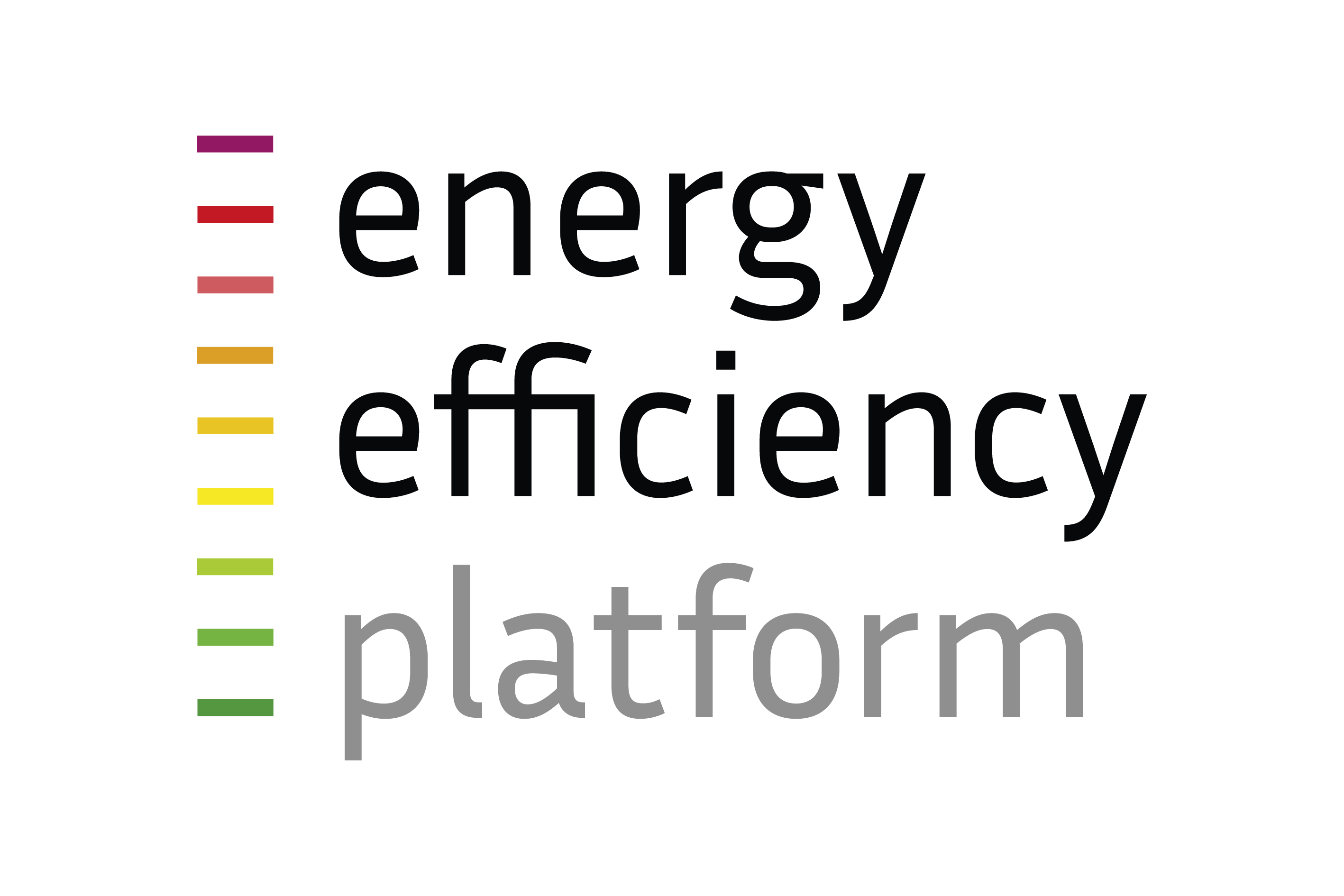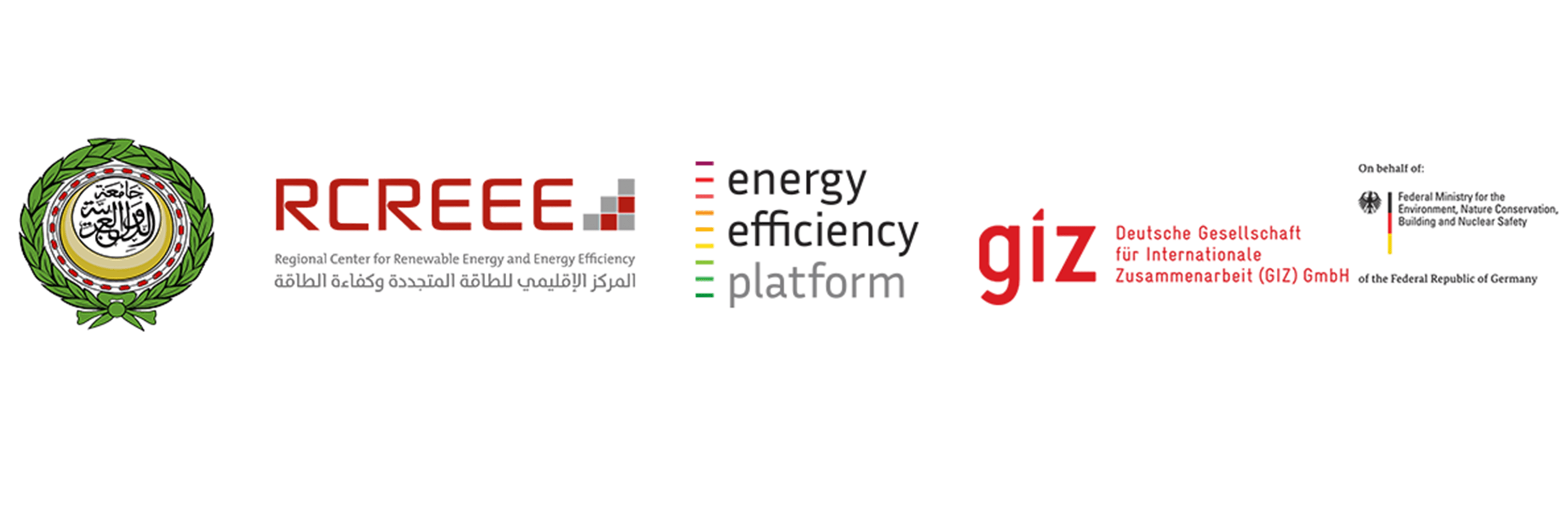
About EE Platform

Energy Efficiency Platform for the Arab Region
Regional exchange platform on instruments for promoting energy efficiency in the Arab Region
Increasing energy efficiency (EnEff) often represents one of the least costly and most effective interventions taken collectively to address the global challenges of climate change within frameworks of emerging markets and growing economies. Therefore, the Sustainable Development Goal 7 (SDG) of the UN Agenda 2030 points to “Ensure access to affordable, reliable, sustainable and modern energy for all”. In particular, target 7.2 includes improvements in energy efficiency: “By 2030, double the global rate of improvement in energy efficiency”.
In the coming decades, countries across the Arab region are expected to continue experiencing rapid population gains accompanied by steady energy and resource demand growth. With the signing of the global Paris Agreement and of the Nationally Determined Contributions (NDCs), Arab countries (among others) have committed themselves to develop and implement strategies to transition to a low-carbon, sustainable economy. Initiated by the League of Arab States (LAS) and the Arab Ministerial Council for Electricity, the “Arab Guideline for Improving Electricity Efficiency and Rationalize its Consumption at the End User” supports “promoting Arab cooperation in the field of energy, particularly in improving its efficiency, and rationalizing its use as a mean of achieving sustainable development”. LAS member states are supposed to include the measures taken within the guideline in their national energy efficiency action plans and programs. Since the initiative’s inception in 2010, National Energy Efficiency Action Plans (NEEAP) have become a strategic national plan framework, helping Arab countries to apply EnEff goals.
Within the Arab region, the dissemination of well-implemented policies and strategic, innovative instruments for promoting energy efficiency is rather sparse. Concerning a successful transition of the Arab energy markets towards decarbonization and increasing EnEff, this status is insufficient. Because of that, there is a strong need for economically feasible and appropriate efficiency solutions that suite the national and regional challenges. Market-based instruments (MBI) and Energy Efficiency Instruments (EEI) combined with further incentive mechanisms and enabling frameworks can provide effective solutions for reducing energy costs and greenhouse-gas (GHG) emissions significantly and with a long-term perspective. Some of these solutions already exist around the globe but have not been transferred and applied in practice throughout the region, yet. Furthermore, taking into account the economic effects of the current COVID-19 pandemic and its impact on economies all over the world, the Inclusion of energy efficiency in recovery programs can increase local value added by creating jobs and can pave the way for a reduction in subsidies, freeing financial resources for other investments.
As an entry point, the GIZ-project DIAPOL-CE has conducted a study on innovative EnEff instruments[1]. It examines EEI/MBI options with a specific focus on its transferability from global good practice examples to selected countries (Jordan, Oman, Morocco, Saudi Arabia, Egypt). As a concurrent follow-up in collaboration with the League of Arab States’ Energy Department and the Regional Centre for Renewable Energy and Energy Efficiency the present concept aims at tackling the spread of EnEff by setting up a “Regional Exchange Platform on instruments for promoting Energy Efficiency in the Arab Region” (EnEff Platform).
The idea of the EnEff Platform is to strengthen regional collaboration by an ongoing format explicitly concerning EnEff, which will be adapted to current and relevant topics on the development of EnEff enabling framework and market conditions. In particular, in addition and complementary to existing global and national networks and initiatives, the platform aims at creating additional value by collectively developing tailored solutions for EnEff instruments and its potential implementation options in the respective country.
For establishing this initiative and as an entry point, governmental decision-makers, which are working on implementing EnEff policies in their respective countries, will be informed on the results of the DIAPOL-CE study on innovative EnEff instruments. Successively, further stakeholders will be included within the platform as guests. Such as private business associations, in order to further develop EnEff instrument options close to the market.
Specific objectives of the regional exchange platform:
- Addressing similar needs in the Arab region collectively and goal-driven with a specific focus on EnEff as the least costly and most effective intervention for decarbonization.
- Learning from good EnEff instrument practices in the region and across the world, identifying proper suitable EnEff business models and market solutions for increasing sectoral and cross-sectoral levels of EnEff and raising up awareness on specific approaches and possible cooperation partners.
- Supporting the dissemination of innovative, market-based approaches for promoting EnEff being suitable to market characteristics and existing framework conditions in a regular capacity-developing framework, including a network of contacts among relevant policy makers and market actors.
- Developing possible, tailor-made pilots for EnEff instruments
Target groups of the regional platform:
- Policy makers, public officials, affiliated organizations responsible for energy efficiency
- National and regional financial institutions; EnEff funds
- Potential contributors to the regional platform:
- Economists specialized on EEIs/MBIs for promoting energy efficiency
- Energy Service Companies (ESCOs) and private sector EnEff actors
- Business associations and further private sector multipliers
- National and regional research groups, Think Tanks, donors
Potential starting point are the findings within the recent study “Innovative instruments for Energy Efficiency in the MENA region”, conducted by DIAPOL-CE and by the Canadian energy consultancy Econoler.
Contact us: hossam.alherafi@rcreee.org

